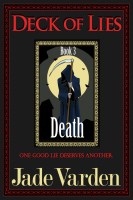Indie authors have to do everything on their own (that's what independent means), and it gets pretty overwhelming. Many indies have to pay for their copyright registration, their book cover, maybe even a book trailer or a professional editor, formatting software -- the cost of a single ebook can add up pretty quickly. Then, of course, there's the marketing: paid advertising, ad design, more software...the list goes on. Should you start paying for reviews, too, and invest in something that could potentially help you sell more books?
Reviews
Reviews are very important, and every indie author wants more of them. Just one 5-star review can cause more readers to become interested...but getting that review is a tedious, heart-wrenching process for many. Is it worth paying to get it?
Kirkus
One of the most well-known names in paid review services, Kirkus makes it a point to reach out to indie authors who are looking for reviews. They also charge an absolutely astronomical fee: a whopping $425 for every book (feel free to wait for your heart to start beating again before you continue reading).
Kirkus has some dignity to it, because despite how much you pay (even if you kick in the extra buck-fifty for the express service) they will give a negative review of your work if the reviewer feels it deserves one. But at those prices, they ought to send a butler to your home for 48 hours and get your car detailed, too.
Those services are not included. You get the review, and just that, after around 7 to 9 weeks. If it's negative, you can choose whether or not it's posed. Once you've approved it, your review will appear on the site. Additional advertising with the site costs extra.
Other Paid Reviews
You'll find plenty of paid review services if you go looking for them as an indie author, because you are someone's market. In recent years, as ebooks and indie authors have become more popular, tons of different sites and services are appearing to help you find ways to part with your money. Everything, from editing to social media marketing to book reviews, is available to you if you've got the dough.
If you are going to use paid review services, it's important to look for sites that give honest criticism and feedback. If you're paying for them, you might as well get something out of them. Paying for a bunch of fake reviews in order to trick customers isn't going to do you any good -- word of mouth will spread faster for a terrible book than a good one. If you get a reputation as a huckster, you won't be able to sell any books. And why would you want to, under such circumstances?
Paying for It
Lots of indie authors and book bloggers are totally against the idea of paying for reviews (and, in fact, many other indie services). I look at it a bit differently. If you don't pay someone for reviews, et. al, you're going to have to put the time in to get them yourself. I've written about the best ways to get reviews before, and I'm not ever going to sugar-coat it: it is time-consuming. If you're doing it right, you should be putting in several hours a week just contacting book blogs and trying to push your ebooks to get them reviewed.
In so doing, you will have less time for all the other stuff you've got to do -- like writing. If you're one of the many indies who also must hold down a full- or part-time job, you'll have less time with your family, less time to exercise, less time for whatever it is you do when you're not working. If you're self-employed, and even if you're not, time equals money. The more time you spend looking at book blogs and writing emails, the more money you might be taking out of your own pocket.
Is the money you're losing worth more, or less, than the money you might spend on paid reviews? That's what you've got to figure out. If spending the money will actually save you even more money, then get yourself a PayPal account and start shelling out the e-cash. If doing the work yourself will save you money in the end, then you already know what you've got to do.

























